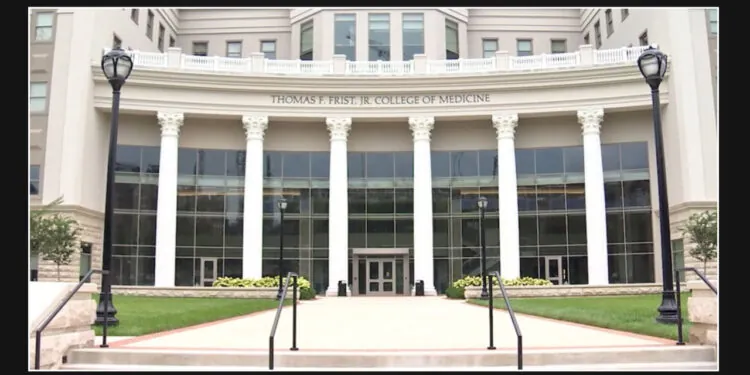Belmont University has made history this week by opening the Thomas F. Frist Junior College of Medicine, making it the first new medical college in Tennessee in 50 years. This comes at a crucial time when the country is grappling with a significant shortage of medical professionals. With its doors now open, the college is set to provide much-needed education and training to aspiring doctors in the state and beyond.
Dr. Anderson Spickard expressed his honor in being entrusted with the responsibility of shaping this medical school.
As the Dean of Belmont University’s inaugural medical school, Dr. Spickard leads at a crucial juncture for the field of medicine. The aftermath of the pandemic has left over 50% of primary care physicians experiencing burnout, as reported by the National Center for Health Workforce Analysis. This presents a significant challenge that Dr. Spickard and his team are poised to tackle head-on.
According to Dr. Spickard, it’s not uncommon for individuals to lose their motivation or sense of purpose. That’s why the goal of the educational system is to ensure that students are not only well-prepared but also passionate about what they’re learning.
Government data predicts that by 2036, there will be a significant shortage of 68,020 primary care doctors in the United States, with rural areas being the most affected. The prevalence of burnout among medical professionals is exacerbating the issue. Despite this, Belmont views these challenges as an opportunity for growth and improvement.
“Our belief is that our students have the ability to revolutionize the field of medicine by providing comprehensive care that addresses the whole person. We don’t view the healthcare system as merely something to endure, but rather as an opportunity for analysis, improvement, and as a means to become agents of hope. We aim to instill this mindset in our students, enabling them to make a positive impact on the healthcare industry.”
In its inaugural year, the medical school will accept 50 students, with the potential to expand to 100. The school boasts not only large lecture halls but also smaller, more intimate community learning studios that encourage collaboration. However, according to Spickard, students will not be limited to the school grounds. They will also participate in service learning projects, allowing them to connect with the people of Nashville.











